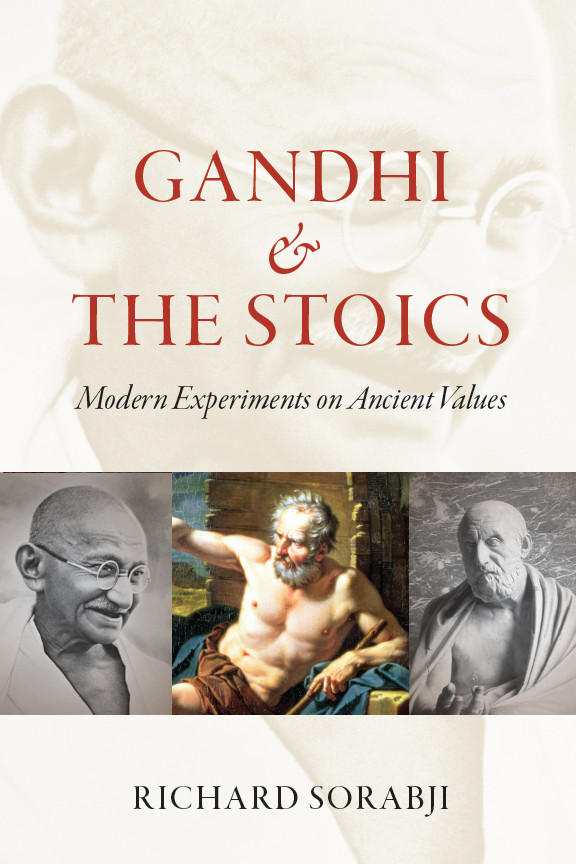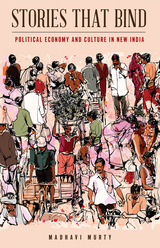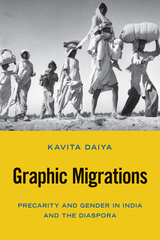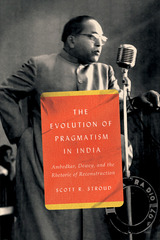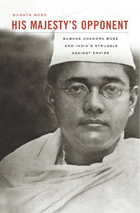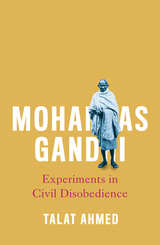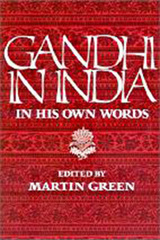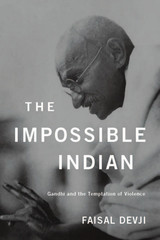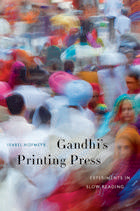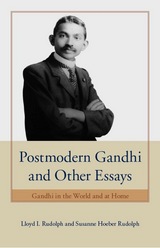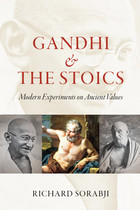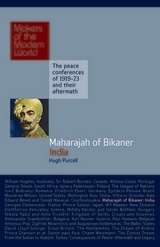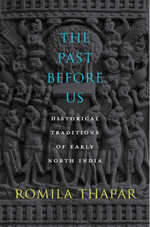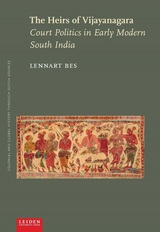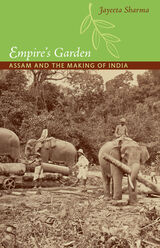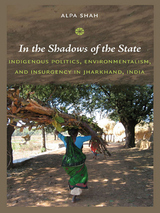Gandhi and the Stoics: Modern Experiments on Ancient Values
University of Chicago Press, 2012
Cloth: 978-0-226-76882-3
Library of Congress Classification DS481.G3S582 2012
Dewey Decimal Classification 188
Cloth: 978-0-226-76882-3
Library of Congress Classification DS481.G3S582 2012
Dewey Decimal Classification 188
ABOUT THIS BOOK | AUTHOR BIOGRAPHY | REVIEWS | TOC | REQUEST ACCESSIBLE FILE
ABOUT THIS BOOK
“Was Gandhi a philosopher? Yes.” So begins this remarkable investigation of the guiding principles that motivated the transformative public acts of one of the top historical figures of the twentieth century. Richard Sorabji, continuing his exploration of the many connections between South Asian thought and ancient Greek and Roman philosophy, brings together in this volume the unlikely pairing of Mahatma Gandhi and the Stoics, uncovering a host of parallels that suggests a deep affinity spanning the two millennia between them.
While scholars have long known Gandhi’s direct Western influences to be Platonic and Christian, Sorabji shows how a look at Gandhi’s convergence with the Stoics works mutually, throwing light on both of them. Both emphasized emotional detachment, which provided a necessary freedom, a suspicion of universal rules of conduct that led to a focus not on human rights but human duties—the personally determined paths each individual must make for his or her self. By being indifferent, paradoxically, both the Stoics and Gandhi could love manifoldly. In drawing these links to the fore, Sorabji demonstrates the comparative consistency of Gandhi’s philosophical ideas, isolating the specific ideological strengths that were required to support some of the most consequential political acts and experiments in how to live.
See other books on: 1869-1948 | Gandhi | Gandhi, Mahatma | Philosophy, Comparative | Stoics
See other titles from University of Chicago Press
